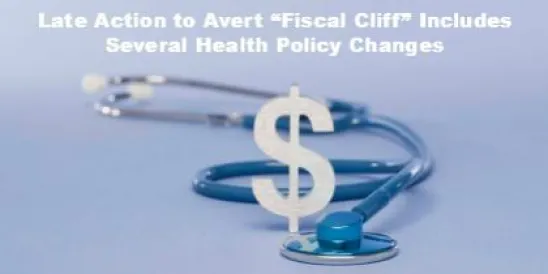Observers noted prior to the 6-3 decision in King v. Burwell today, which upheld federal subsidies for all, that the case would hinge on just four words – “established by the state.” It turns out, the case hinged on one word – “such.” Although the plain language of section 36B of the Affordable Care Act (ACA) provided that subsidies flowed to residents buying an insurance policy on an “exchange established by the state,” of which there are currently only 16, the chief justice and five colleagues found that another phrase directing the federal government to establish “such” exchange, if a state did not, was proof enough for them that Congress intended subsidies to be available on both federal and state exchanges.
That is the legal side. As to the practical effect on the system established under the ACA, only one word applies: “nevermind.” Federally facilitated exchanges will proceed as though nothing has happened. The Supreme Court has upheld the law as it is currently implemented.
The court did note that the phrase contained in Section 36B was ambiguous, but said it disagreed with the Fourth Circuit regarding how to deal with that ambiguity. Rather than giving complete deference to a regulatory agency, which the Fourth Circuit did, the court said such deference is due only when it is clear Congress intended to give such deference. If Congress did not make that clear, Chief Justice John Roberts declared, it is the court’s duty to read the ambiguous phrase in context of the statute and effectuate the purpose of Congress. When read in that light, the case became an easy one, since both sides agreed that removing subsidies from the 34 states not planning to operate exchanges in 2016 would wreak havoc on the system implemented by the ACA. In that sense, the court decided not a healthcare case, but an important principle of statutory construction.
A variety of healthcare interests are breathing a sigh of relief — as well as are some politicians. Insurers selling individual policies in 34 states will have relatively more stable and predictable pricing, even if those prices may rise for other reasons; hospitals will not lose new customers; and makers of drugs and devices dependent on third-party financing will continue to see business grow. Importantly, lawmakers who have opposed the ACA, and might have felt pressure to respond to constituents who lost subsidies, will get some breathing room to regroup without the immediate need to take action.
Either way, the issue now thrusts healthcare squarely into the 2016 presidential election without the intervening force of a Supreme Court decision changing the facts on the ground. Look for the next shoe to drop later this summer, when insurers announce new premiums for 2016 in the individual market. They are expected to rise dramatically. There will be no Supreme Court decision to blame for that reality, and policymakers on the stump will defend or attack the law based on the realities experienced by patients and providers.




 />i
/>i
